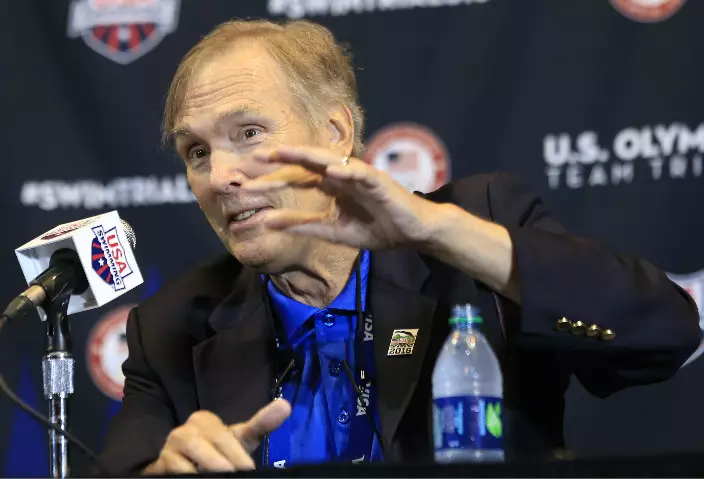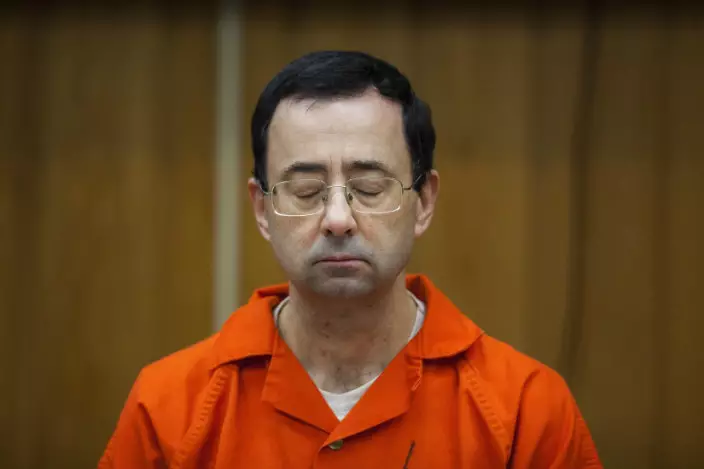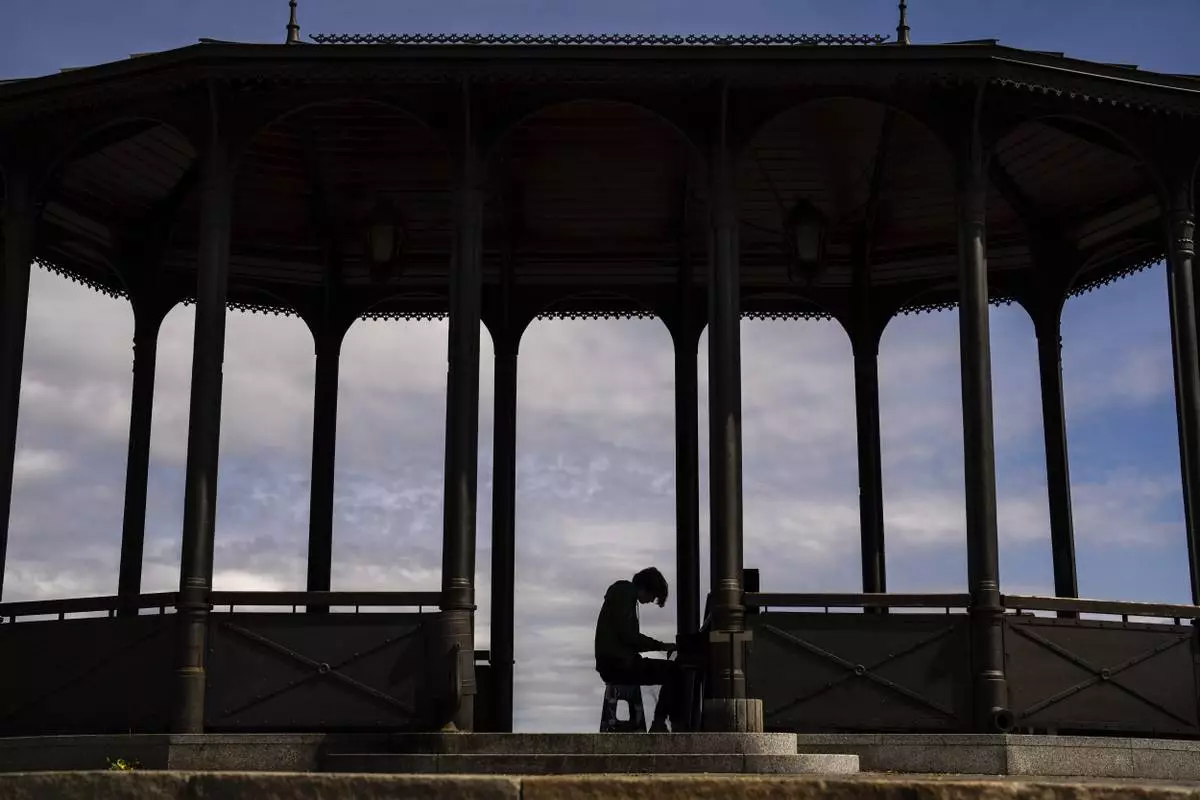Some advice to all the parents out there, particularly those swept up in the soaring passion and tear-jerking emotion of the Olympics.
If your children dream of going for a gold medal someday, you might want to nudge them in a different direction.

In this June 24, 2016, file photo, Chuck Wielgus, executive director of USA Swimming, answers a reporter's question during a news conference at the U.S. Olympic team trials in Omaha, Neb. USA Swimming and longtime executive director Wielgus, who apologized to victims of sexual abuse, maintained control over the day-to-day operations right up until his death in April from colon cancer. (AP Photo/Orlin Wagner, File)
At the very least, it's time to have a serious talk about the very real dangers they could face along the way.
Because this much is clear: The folks who run the U.S. Olympic movement have largely failed when it comes to protecting our young athletes from predators and perverts, and there's not much reason to believe this intolerable situation will improve without a total shake-up.
Right in the midst of the Winter Games, with hardly enough time for Larry Nassar to settle into the prison cell where he'll be spending the rest of his life, we got another report detailing horrific abuse and shameful cover-ups within one of the most high-profile summer sports.

In this Feb. 5, 2018, file photo, Larry Nassar listens during his sentencing at Eaton County Circuit Court in Charlotte, Mich. Right in the midst of the Pyeongchang Games, with hardly enough time for Larry Nassar to settle into the prison cell where he'll be spending the rest of his life, we got another report detailing horrific abuse and shameful cover-ups within one of the most high-profile summer sports. (Cory Morse/The Grand Rapids Press via AP, File)
The Southern California News Group conducted an extensive investigation that found USA Swimming repeatedly balked at overhauling a culture in which "the sexual abuse of underage swimmers by their coaches and others in positions of power within the sport was commonplace and even accepted by top officials and coaches," resulting in hundreds of young victims.
If all that sounds familiar, it should.
This issue has been a stain on swimming for years now, rearing its ugly head again recently when 2012 Olympian Ariana Kukors accused former coach Sean Hutchison of grooming her beginning at the age of 13 for what became an underage sexual relationship. Hutchison denied the claims.
Of course, we're still trying to process how hundreds of young gymnasts could be molested by Nassar under the guise of medical care, while USA Gymnastics largely looked the other way. Thankfully, the disgraced sports doctor has been locked away for good, but the long list of victims — including several gold medalists — are left to cope with their own life sentences.
"The Olympic system failed you, and we are so incredibly sorry," U.S. Olympic Committee chairman Larry Probst said shortly before the flame was lit in Pyeongchang.
To its credit, the USOC has taken some positive steps.
It launched the U.S. Center for SafeSport, which is responsible for investigating all abuse cases involving Olympic athletes.
It forced out the leadership at USA Gymnastics.
"We think that we did what we were supposed to do," Probst said. "Could we have done more? Of course. You can always do more."
Indeed, the USOC could've done more, should've done more.
Yet with each passing day, it becomes more and more difficult to believe that those currently in charge are capable of such a monumental change in action and attitude.
The latest report certainly raises new questions about the USOC failing to take any meaningful steps against USA Swimming and longtime executive director Chuck Wielgus , who maintained control over the day-to-day operations right up until his death in April from cancer.
Speedskating dealt with its own sexual abuse scandal a few years ago . Andy Gabel, a four-time U.S. Olympian in short track, was accused of having improper sexual relationships with two underage skaters, leading to his resignation from leadership positions within both the U.S. and international governing bodies.
Incredibly, though, Gabel remains a member of the National Speedskating Hall of Fame.
That is yet another slap in the face to those who have suffered, and another unmistakable sign that those in power refuse to comprehend the depth of the problem — or just don't care.
The USOC stands at the top of a complex web, but it has always been hesitant about reining in the more than 40 sports organizations it oversees, known as national governing bodies (NGBs).
That has led to a baffling range of policies for dealing with emotional, physical and sexual abuse, almost certainly guaranteeing that the next scandal is right around the corner.
If it can happen in swimming and gymnastics, just imagine how easy it would be for a sexual predator lurking in a lower-profile sport to wreak untold misery.
Probst acknowledged that the hands-off approach to the NGBs must change.
"Right now, they are independent institutions that have their own board of directors, their own management teams, their own revenue-generating machines," he said. "But clearly some things have occurred that would indicate we need to have a different relationship than we may have had in the past."
Of course, one must wonder why it took so long to recognize such an obvious flaw in the system.
It's easy to see the reasoning of those who want the USOC to clean house, a demand being pushed by two U.S. senators and former Olympic swimmer and activist Nancy Hogshead-Makar, whose group includes 17 other Olympians.
In particular, they have a bulls-eye on CEO Scott Blackmun.
"We've done a lot of things," Probst said while defending Blackmun, "but clearly more needs to be done."
In the meantime, parents, you might want to put a damper on your kids' Olympic dreams.
Their safety comes first.










